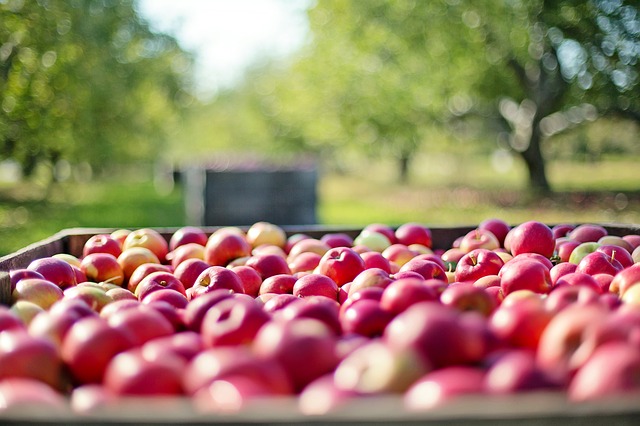
Mark Hansard wraps up his series on the Fruit of the Spirit in the academic life. See Post 1 and Post 2.
Quotation
But the fruit of the Spirit is love, joy, peace, patience, kindness, goodness, faithfulness, gentleness and self-control. Against such things there is no law. – Galatians 5:22-23
Reflection
In Part 1 of this series, we looked at love, joy and peace, and what it would look like to manifest these virtues in the academy. In Part 2, we looked at patience, kindness, goodness, and gentleness. Today we will look at the last two virtues that Paul lists as fruit.
Paul lists pistis, faithfulness, as one of the final descriptions of the fruit of the Spirit here. Pistis is used often in the New Testament for “faith,” but here it means “faithfulness,” which consists of loyalty, trustworthiness, and reliability. The word is used to describe the faithful (“trustworthy”) servant in Luke 16:10-12. The NIV describes Paul as “faithful” in 1 Timothy 1:12, and translates the word as “reliable” in 2 Timothy 2:2. God is described as “faithful” to us throughout the New Testament, and when we are filled with him, we are filled with his faithfulness.
What does it look like to demonstrate pistis in the academy? Some time ago I heard a professor describe the agonizing decision he made regarding where to accept a tenure-track position. Years before, he had applied to a number of schools, including a large state institution and an elite university on the East Coast—which boasted one of the top five departments in his field in the country. The state university offered him a tenure-track position, and he accepted. A little later, he was verbally offered the same position at the elite institution! What to do? He agonized over the decision, but a conversation with his wife settled the matter. “You gave your word to the [state] university,” she said. He turned down the offer from the elite university and took the position at the less prestigious state school. Professors at both universities were dumbfounded. They certainly wouldn’t have done what he did! How could he have done this? “I gave my word,” was his reply. That’s pistis. This professor manifested the trustworthiness and reliability of the Lord.
The final fruit Paul discusses is enkrateia, or self-control. Enkrateia is a word Greek philosophers used for control over the passions. They used it to refer to moderation or “temperance” with regard to food or sex. In 1 Corinthians, Paul uses this word to refer to control over sexual desires (1 Cor. 7:9), and the discipline of the athlete racing for the prize (1 Cor. 9:25). One evidence that being filled with the Spirit is not merely an emotional state but involves reason, is the presence of enkrateia here. It’s the refusal to overindulge in something because of a long term goal.
The pressure to publish and produce in the Academy provides numerous opportunities to manifest enkrateia. For example, refusing to work long hours at the expense of needed time with family is a type of enkrateia. And so is the refusal to cut corners to get ahead or justify a research grant. Famously, South Korean scientist Hwang Woo-suk fabricated research data and covered up certain lab techniques when he claimed he had successfully created human embryonic stem cell lines from donated eggs in 2005. His paper in Science that year was considered a biotechnology breakthrough, but was later retracted after it was discovered he fabricated his data and broke ethical rules. “I was blinded by work and my drive for achievement,” he later admitted.[1] It’s easy to give in to publication or grant pressure to cut corners, or even fabricate experiments. But when we are filled with the Holy Spirit, our enkrateia keeps us from indulging in short-cuts. You may never get accolades from the university for manifesting enkrateia, but God sees even the hidden temptations you refuse, and he will reward you in the end.
All nine virtues Paul lists make up this one fruit of the Spirit (karpos, singular in the Greek). When we are filled with the Spirit we manifest God’s true character, his love, power, and patience. To the extent that we’re filled with him, we will be unusual figures in the university. And that’s exactly the point. The Academy desperately needs people who shine forth God’s character, who show the university community that success and true goodness go together.
Questions
Where in my academic life is there an opportunity to show faithfulness? How has God rewarded that faithfulness in the past? If he doesn’t seem to be rewarding it, what can help me trust in his long-term goodness and provision?
Where am I tempted to neglect self control? Where could I practice faithful enkrateia?
Prayer
Oh Lord, let me bear all the fruit of your Spirit. Let me dwell faithfully in your goodness, looking to you for all good gifts. When faithfulness doesn’t seem to be rewarded, let me trust in you. Thank you that you are always good, that your Spirit delights to pour out good gifts on your children. In Jesus’ name, amen.
Notes
[1] https://en.wikipedia.org/wiki/Hwang_Woo-suk#Parthenogenesis
Further Reading
Longnecker, Richard N. Galatians. Vol. 41 of the Word Biblical Commentary series. Nashville: Thomas Nelson Publishers, 1990.
Patterson, Richard D., “Fruit of the Spirit,” on Bible.org. https://bible.org/article/fruit-spirit. Accessed September 22, 2015.
Image courtesy of jill111 at Pixabay.com
Mark is on staff with InterVarsity Christian Fellowship in Manhattan, Kansas, where he ministers to Faculty at Kansas State University and surrounding campuses. He has been in campus ministry 25 years, 14 of those years in faculty ministry. He has a Master’s degree in philosophy and theology from Talbot School of Theology, La Mirada, CA, and is passionate about Jesus Christ and the life of the mind. Mark, his wife and three daughters make their home in Manhattan.

Leave a Reply